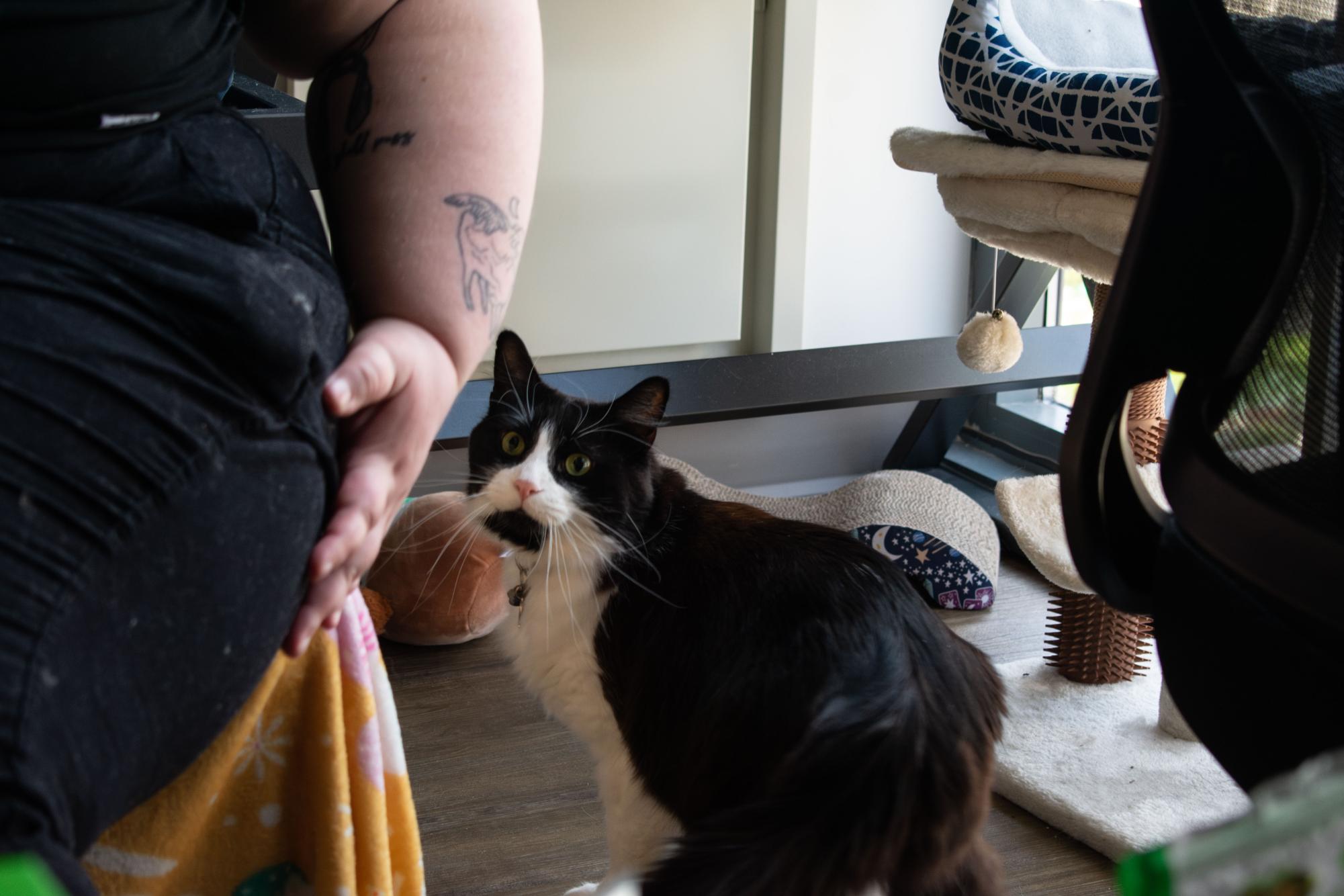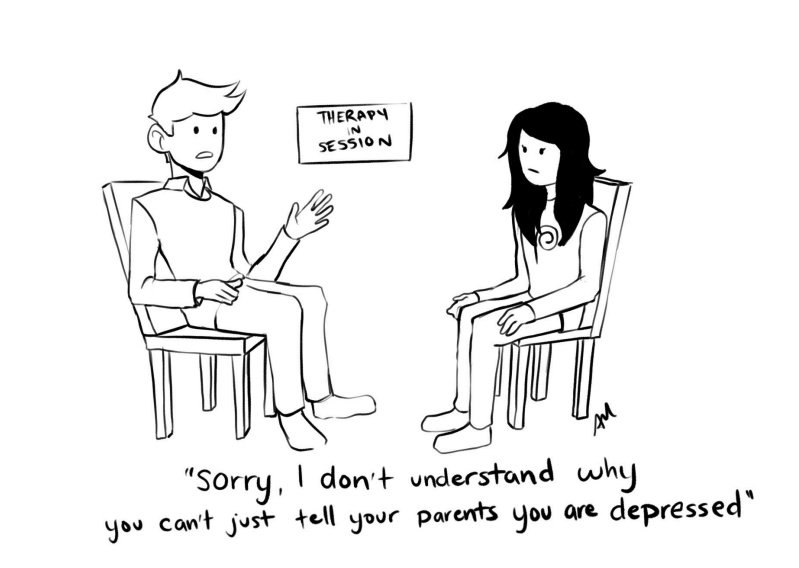MENTAL HEALTH ISSUE
Bear, an Australian shepherd, sits patiently on the cold lobby tile at the veterinarian’s office. This is one of his weekly visits to Jennifer Merleau, who ushers him into an exam room and feeds him treats. Today, she is able to give him a vaccine. Six months ago, Bear snapped at another veterinarian for just opening the package containing a syringe.
The underlying mental health issues that caused Bear’s fear of needles are not unusual. Mental health issues in animals have become a growing concern in recent years.
Animals experience similar mental health issues as humans, such as anxiety and depression, but they manifest in ways that may not be immediately apparent to pet owners—things like repetitive destructive tendencies and aggression.
One contributor to the uptick in animal mental health issues is the shift toward no-kill shelters over the past several decades.
Prior to this, aggressive animals and those with histories of poor physical or mental health were commonly euthanized. Since the early 1990s, Chicago has seen a rapid decrease in euthanasia within shelters. While this approach saves more lives, shelters are now adopting out many animals that previously would have been put down for their behavioral issues. Now, these animals are up for adoption, presenting challenges for pet owners.
Another contributor is the number of animals who spend the first months of their lives in shelters.
The majority of socialization and behavioral patterns in dogs develop within the first three months. Dogs raised in shelters or other nonideal circumstances may not be exposed to proper stimuli during this developmental period, leading to fears, a lack of attachment and life-long stress. This is why many owners of adopted dogs believe their pets have trauma from prior events or people. It is often a lack of exposure to new stimuli during their developmental period that causes their anxiety and not necessarily trauma.
Pet owners who adopt through shelters are not always well-equipped to deal with the variety and severity of mental health issues that their animals may have. That, combined with people who adopted pets during the pandemic and then changed their minds, has led to animals being surrendered to shelters. In 2023, Chicago’s Animal Care and Control reported taking in over a thousand animals surrendered to the shelter by their owners.
Addressing root causes
“The number one reason that animals end up in a shelter or get returned to a shelter are generally behavior issues,” said Merleau, who is the director of veterinary affairs at Fear Free, an organization that works to reduce pet fear, anxiety and stress through programs that educate pet owners and professionals.
One of their programs works specifically with shelter staff.
“What we try to do with our shelter program is educate people who are handling these pets to make sure that we can reduce [animals’] fear while they’re in the shelter setting,” Merleau said, “and desensitize them to some of the things that they’re going to experience when they get adopted and go home.”
Fear Free estimates that 13,000 shelters currently house 6 to 7 million pets, primarily dogs and cats. Those shelters are stressful for animals, who suffer from abrupt changes to their previous situations, unpredictable schedules and inadequate stimulation. This can lead to poor physical and mental health.
To remedy this, Fear Free’s shelter program provides shelter employees with strategies for reducing the stress, anxiety and fear shelter animals experience throughout the process, from intake through adoption. This includes education on how to read signs of animals’ emotional states – particularly fear and frustration – and how to interpret and respond to problematic behaviors.
Fear Free provides training videos showcasing training techniques for rescue and shelter workers, veterinarians and other pet professionals, followed by quizzes that go over the information presented in the videos.
Instead of working hands-on and assessing each animal individually, Fear Free aims to give those who complete the program a well-rounded understanding of animal behavior. From there, participants in Fear Free’s online programs can help more animals than just their own. Outside of their dedicated programs, Fear Free posts consistent online content on their website for concerned pet owners. These posts are written by industry professionals and can answer questions as simple as “Why is my dog panting?” to more complex questions like “How do cats learn?”

Help for pet owners
Sometimes, it can be helpful for overwhelmed pet owners to see what other pet owners have done to solve the issues their animals are facing. House Rabbit Society of Chicago advocates for animal mental wellbeing through blog posts on their website, providing general rabbit care advice along with enrichment and quality of life standards for rabbits.
Volunteer Katherine Boron has written about solutions to problems that she faced when first adopting rabbits. Her first rabbit was depressed until she adopted a second rabbit, so she often promotes keeping rabbits in pairs.
Other posts by staff and volunteers address how to set up a space for a pet rabbit, proper diet, enrichment and nutrition. The blog aims to help new and experienced rabbit owners understand the behavior of their animals and troubleshoot issues so they aren’t returned to shelters. The House Rabbit Society also recommends what to do if problems can’t be overcome: find an adoptive home if at all possible, rather than surrendering a rabbit to a shelter.
When pet owners are able to solve the problems affecting their pets’ mental health, it can be good for them as well, Boron said.
“It benefits humans too, in my opinion, because they’re more fun when they’re happy,” she said.
Pets should remain with their owners ideally, but when a pet is aggressive, a professional trainer may be necessary.
Chicagoland Veterinary Behavioral Consultants pairs concerned pet owners with certified trainers who can help animals struggling with aggression, anxiety and destructive behaviors caused by poor mental health. After a consultation to help the owner and trainer understand what issues an animal is facing, the trainer helps the owner learn and reinforce positive behavioral patterns.
Liz Geisen, the practice manager and a behavior therapy trainer at Chicagoland Veterinary Behavioral Consultants, showcases training virtually using her own animals, who model behaviors and exercises in front of the camera for owners to recreate. Geisen said the virtual setting makes it easier for anxious animals to feel at ease because a new person isn’t entering their space.
Geisen says her process has three steps: “Medication, if warranted; behavior modification, which is teaching coping skills; it has nothing to do with obedience; and management, which is changing things in the environment to help make changes in behavior.”
Geisen is a proponent of rewarding animals showcasing less destructive or anxious behaviors and not punishing non-ideal behaviors. This can look like giving praise when a dog walks through a room with new people without growling, or rewarding a dog with treats if they stay calm when their owner leaves the room. She advises owners to work with their animals during downtime throughout the day. For instance, when food is being cooked in the microwave, a pet owner can praise their dog for not jumping up on them.
The importance of patience
Since animal mental health is a relatively new issue, pet owners may become overwhelmed when faced with the need to address it. Merleau and Geisen are empathetic toward pet owners experiencing this for the first time and emphasize patience while using programs like Chicagoland Veterinary Behavioral Consultants and Fear Free to better the mental health of their animals.
“The earlier we start working with them to try to undo those negative associations, the better chance we have of getting them to a more positive place,” Merleau said. “When we’re dealing with highly anxious pets like this, it’s a slow process. It’s not going to be something that changes overnight. So setting those expectations for people is really important.”
Indy, an anxious Pitbull-lab mix, came into Merleau’s veterinary practice muzzled and with tense, dilated eyes. As vet technicians walked by, Indy tried to bite at them through her muzzle. Indy’s owner confessed to Merleau that he didn’t want Indy to struggle with the anxiety that caused her to lash out because she was a loving and friendly dog at home.
Turning to the techniques taught in Fear Free’s online Veterinary Certification Program, Merleau was able to make the vet’s office significantly less stressful for Indy.
“She was still nervous,” Merleau said. “But she could be around people without a muzzle on and that was not the dog that came to me six or eight months prior. Now she was sitting here in my lap, no muzzle, still a little nervous, but she would at least sit with me.”
Copy Edited by Myranda Diaz.





















